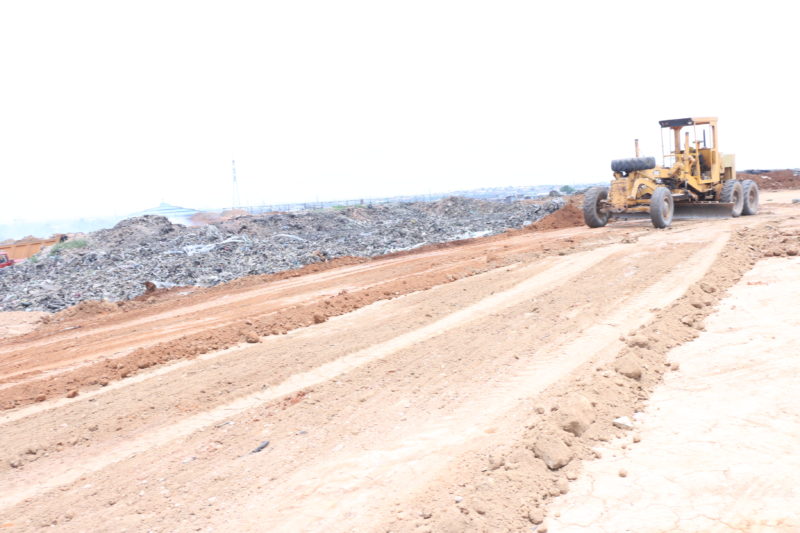The 47-hectare Olusosun dumpsite in Lagos is undergoing capping to stop emission of poisonous smoke and fire outbreak at the facility, the News Agency of Nigeria (NAN) reports.

NAN correspondent who visited the dumpsite on Monday, May 7, 2018 reports that work is in full gear as earthmoving equipment are seen overlaying with sand while loaders are pouring laterite on the surface.
Speaking on the project, Dr Iyabo Phillips, Director of Environmental Services, Lagos State Ministry of Environment, said that the capping would last for a month.
Phillips said that the site was been covered with 250 truckloads of laterite every day to ensure that the resurfacing area was completed within a month.
She said that drainage had been constructed around the dumpsite for easy access to the dumpsite to prevent erosion.
“We are aware of the impact of the fume on people around, so we had to pull down the fence down in order to control the fume coming out.
“To ensure that lives and properties are protected, all the inhabitants of the area, especially asthmatic patients, have been asked to vacate to enable us quench the fume.
“The volume of the fume has been reduced,” Phillips said.
Mr Segun Adeniji, General Manager, Lagos State Waste Management Authority (LAWMA), said that the capping was undertaken by the state government to drastically reduce fire and smoke from the landfill site.
Adeniji said that government was aware of health hazard of smoke on the people and was making serious effort to stop it immediately.
“We are assuring the people living in this area that within a couple of weeks, this will be a thing of the past.
“The entire plan is total remediation of the place so the state government can turn it to a recreation park for people to relax,” he said.
Essien Nseabia, LAWMA Assistant General Manager, Operations, said there were two types of landfill fire – the surface fire and the deep-seated fire.
Nseabia said that when the surface fire continued for a period of time, it would extend underground.
According to him, landfill fire is fueled by methane gas trapped under the waste as a result of bio-decomposition of waste.
“When methane gas mixes with oxygen, it becomes volatile and burns seriously.
“So in attempts to quench the fire, the first thing you do is try to exclude the oxygen from the burning fume, so as to reduce the flammability power of the methane gas.
“When the wind blows on the dumpsite, there is intrusion and that intrusion takes oxygen into the vent of the waste. So the more oxygen enters the waste, the more the burning capacity of the fire.
“So the first thing to do is what is called capping. Capping is taking laterite to block that vent, by covering the dumpsite.
“Laterite is reddish in colour and that red colour is as a result of iron (II), then that iron in the laterite absorbs oxygen from underneath of the deep-seated fire and get oxidised to iron (II) oxide. So when the laterite forms that, it blocks the oxygen and the fire stops.
“Every day we have estimated 250 trips of laterite, at times we go beyond that, we can go below that depending on the atmosphere,” he said.
NAN recalls that the Olusosun dumpsite in Ojota, Lagos was gutted by fire on March 14.
By Florence Onuegbu
